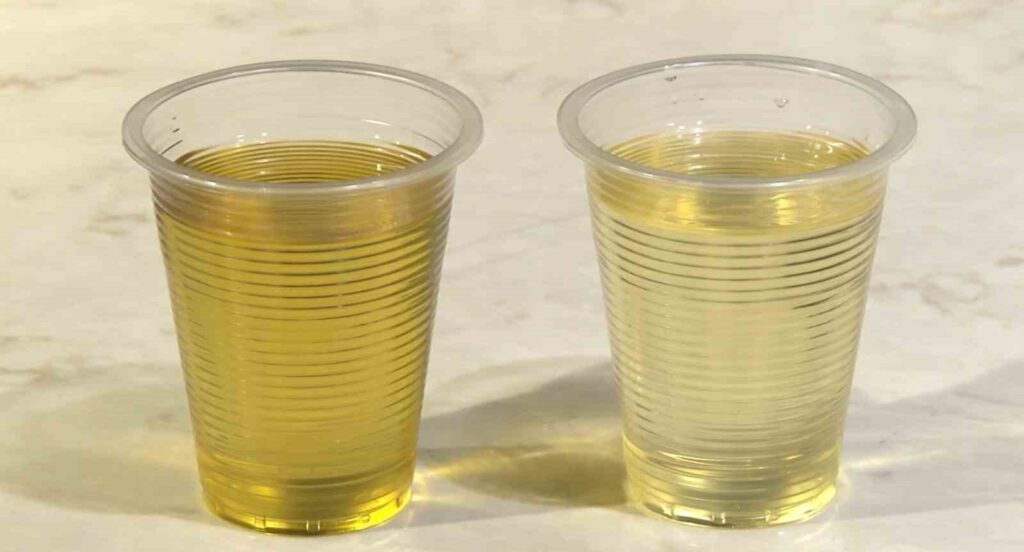Do not let consumers be deceived by ‘Olive oil flavored oils’ specially produced for cafes and restaurants
After the rice oils on the market shelves, now ‘olive oil flavored oils’ have become widespread in the market. These oils, which are generally produced for professionals such as cafes and restaurants, can deceive consumers. The oil that comes to your table and you think it is olive oil …

After the rice oils on the market shelves, now ‘olive oil flavored oils’ have become widespread in the market. These oils, generally produced specifically for professionals such as cafes and restaurants, can deceive consumers. The oil that comes to your table and that you consume thinking it is olive oil, can actually be ‘olive oil flavored oil’. Experts say that it is very difficult for consumers to distinguish this.
After the rice oils on the market shelves, ‘olive oil flavored’ oils are present in the market. These oils are generally produced for cafe and restaurant businesses. In addition, the customer cannot easily distinguish whether the olive oil served at their table is fake or real. These oils, which contain cotton oil, are colored with coloring agents to give the appearance of olive oil, and are flavored with olive oil aroma, actually deceive the consumer. Highlighting the importance of food literacy, Istanbul Yeni Yüzyıl University Faculty of Health Sciences, Department of Nutrition and Dietetics Chairman Dr. Asst. Prof. Hilal Demirkesen Bıçak and olive oil producer Esat Herdan provided various information on the subject.
‘The law allows the addition of flavor’
When we compare sunflower, soy, and cotton oil with olive oil, olive oil’s ‘rich in monounsaturated fatty acids’ protects brain and heart health and lowers bad cholesterol. Consumers expect these healthy effects. However, Dr. Asst. Prof. Bıçak, pointing out that the high price of olive oil leads to counterfeiting and adulteration, stated, ‘This is equivalent to deceiving the consumer. Mass production of ‘olive oil flavored oil’ is done for restaurants and cafes. The law allows the addition of flavor. These oils produced mainly for mass consumption are regulated according to the olive oil and Rice Oil Communiqué. The consumer is actually offered a product that is not olive oil, but a similar one. It is a practice carried out by producers with malicious intent driven entirely by economic concerns.’
‘Rice oil is a type obtained by the addition of chemical solvents’
Emphasizing that there are varieties of olive oil as well, Dr. Asst. Prof. Bıçak said, ‘In the communiqué, it is mentioned as olive oil and rice oil. The consumer’s mind can also be confused at this point. Rice oil; is a type of oil obtained by the producer by applying heat treatment at high temperatures to the olive pomace remaining after obtaining olive oil and the addition of chemical solvents. So, it is an alternative oil offered economically. It is considered suitable for consumption according to the Turkish Food Codex. We can also see it on the market shelves with the label of rice oil. But we never define it as olive oil. Although it is made from the residue obtained from olive oil production, it cannot be described as olive oil. Rice oil is considered as a separate oil itself.’
‘Refined and natural olive oil can confuse you’
Dr. Asst. Prof. Bıçak pointed out that there are some terms that can confuse consumers, ‘These are refined olive oil, natural olive oil. In the communiqué, natural olive oils are divided into extra virgin olive oil and natural virgin olive oil. Here, when consumers look at the shelves, they see labels as cooking and salad oils. If they are cooking and have economic concerns, they can prefer Riviera olive oils. What distinguishes these from extra virgin olive oils is not purely obtained physically, but applying a certain amount of heat, refining process again. But if they want to get higher bioactive components in salads, they can prefer ‘salad oils’. Especially if they will not be subjected to heat treatment; we can think of adding oil to salads, raw vegetables. Here, natural oils, labeled as natural virgin, natural extra virgin olive oils can be preferred. Of course, as long as economic conditions allow.’
‘It is not possible for us as consumers to distinguish whether olive oil is natural or not’
Dr. Asst. Prof. Bıçak said, ‘Unfortunately, as consumers, it is not possible for us to distinguish whether an olive oil is natural or not. We can understand whether an olive oil is natural or not only after being analyzed using chromatographic methods in laboratory conditions.’
‘If the brand name includes olive, Aegean, do not directly assume it is genuine olive oil’
Dr. Asst. Prof. Bıçak continued, ‘Food literacy is very important here. Consumers always need to pay more attention to avoid being deceived and protect themselves from counterfeit foods. They should read labels a little more. They need to understand that misleading brands actually do not contain what they claim. If a brand name includes olive, Aegean, they should not directly associate it with olive oil. The producer wants to catch and deceive the consumer. Producers do not write olive oil on their labels, they cannot because it is prohibited. So what do they do? They can add olive oil reminder visuals or brand expressions to the product label. Here, the consumer should be twice as careful.’
‘It is very difficult for people without a palate to distinguish between fake and genuine’
Commenting on how genuine olive oil can be distinguished, Olive Oil Producer Esat Herdan said, ‘Individuals cannot easily distinguish whether the olive oil they consume is genuine or not. For this, there must be a taste of olive oil. In other words, there must be a consumption habit of olive oil. If this is not the case, the consumer cannot understand whether it is genuine or not. Because genuine olive oil has a unique aroma and flavor. Users who are not accustomed to this will not easily distinguish between genuine and fake.’
‘The price per liter of quality olive oil ranges from 300 to 500 Turkish Liras’
Stating that ‘The price per liter of quality olive oil ranges from 300 to 500 Turkish Liras’, Herdan said, ‘Lower quality ones are in the 300 lira range, while higher quality ones are in the 500 lira range. Extra light yellow olive oil generally does not exist. In mature harvests, in certain regions maybe, it is not light yellow. The color is a greenish sweet yellow. Oil made from olives picked from the ground, rotten will leave a bad taste in your mouth. You can start by distinguishing between good and bad olive oil from here. But regarding fake oils, if you do not have the habit of consuming olive oil, and cannot distinguish between good and bad, it is very difficult for you to distinguish the fake oil as well. Fake oil can only be understood in laboratory analyses.’
‘Do not buy unbranded products’
Finally, Herdan warned as follows: ‘One of the most important things the consumer should pay attention to when consuming olive oil is the brand. They should not buy unbranded products. I strongly recommend consumers to consume and pay attention to branded products that are inspected by the Ministry of Agriculture and Forestry, and have production permits when buying.’







